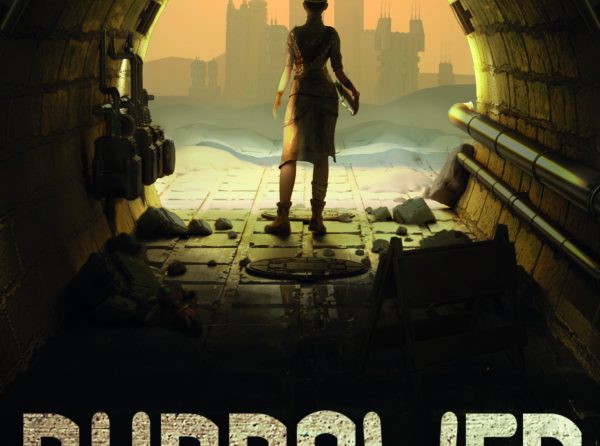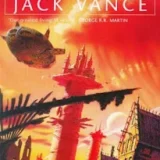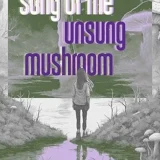
OBIR: Occasional Biased and Ignorant Reviews reflecting this reader’s opinion.

HEXAGON SPECULATIVE FICTION MAGAZINE issue #3, Winter 2020.
Published out of Treaty 6 Territory, Saskatoon, Saskatchewan, Canada.
Editor in chief: JW Stebner (A member of the Literary Translator’s Association of Canada).
Cover Art: Thais Leiros
EDITORIAL:
Editorial – by JW Stebner
Review:
Stebner is very proud of the role of semiprozines (like Hexagon) “in the literary Magazine industry.” As publisher of the semiprozine Polar Borealis and the soon to be introduced Polar Starlight (devoted to Canadian Speculative Poetry) I have to say I agree with him. I’m quite keen on enthusiasts starting up such and thus am very pleased to have discovered Hexagon. (Actually, I was led to it by Robert Runté, who told me about it, for which I am grateful.)
My zines are narrow-niche, aimed at Canadian authors. JW Stebner seeks writers world-wide as Hexagon is meant to be international in scope. In fact I’m not certain any of the authors published to date are Canadian. Some may be living in Canada today, but they all seem to have originated in an incredibly diverse range of cultures and nations.
Evidently the publisher/editor has a vision of presenting world SF&F in as great a variety as possible. Nothing wrong with that. Every bit as splendid and worthwhile as my vision showcasing Canadian talent. In a sense, our two publications compliment each other. Readers should read both.
By the way, just like Polar Borealis, the current and back issues are available for FREE download. One of the advantages of being a semiprozine, costs are limited and, once met, allow publishers to offer their magazines for free since their underlying motivation is not money but promoting and presenting authors.
To compare, I pay $10 to $30 CAD up to 3,000 words for stories, Stebner pays a flat rate of $10 CAD for stories up to 7,500 words. On the other hand, I pay only $40 CAD for cover illustrations, and Stebner offers $100 CAD. So, in theory, he can produce an issue of Hexagon for about half of what it costs me to publish an issue of Polar Borealis. Either way, production costs are ludicrously cheap compared to professional zines. I think we’re both in the position of acquiring enough money in a very few months to pay for the next issue, and once that’s done, money is no longer part of the equation and we can make our magazines available to the reading public at no cost to them.
This is why I suspect editors of professional fiction magazines envy semipro editors like Stebner and myself. We experience virtually no stress and have a heck of a lot of fun.
One difference between JW and myself. I still have my Le Français Vivant High School text book first published in 1957. Alas, I still can’t read past the first few chapters. I wasn’t able to pick up Latin, either. But JW Stebner eagerly seeks submissions in French as he is more than able, being a translater, to convert the text into English. This gives him access to the same pool of writers the magazine Solaris draws from. I envy him. (Mind you, I occasionally receive English translations of stories originally published in French, so I can’t complain too much.)
Now let’s see what sort of stories JW likes to publish.
FICTION:
Charmed Honeycake – by Archita Mittra
Premise:
If you have “bargained away your first born or lost your little sister to the Goblins” this is the recipe to rescue your loved one.
Review:
One ancient Roman cook book survives, by Apicius, which covers everything from simple porridge to boiled Ostrich. Alas, it lists the ingredients but fails to give detailed instructions on what to do with the recipes. The best modern translation, by Dover Books, employed a chef to make sense of the recipes with his best guestimates on how to conjure up the intended results.
In this story we have a fantasy recipe befitting its fantasy function. By itself, amusing. However, the bulk of the story provides the sort of comprehensive instruction the Apicius cookery book lacks. Not that I recommend you try the recipe as listed. Some of the ingredients, to put it mildly, are somewhat difficult to get a hold of.
In the course of the instruction you learn how the cook lost her young daughter and much about the frantic nature of her search until she learned enough to attempt this solution. But what is really intriguing is the glimpse into the implacable nature and motivations of the Fae Folk. They seem delightful and enticing, but are truly alien and dangerous. Buyer beware, indeed.
To sum up, a refreshing and subtly frightening glimpse of the Faery Folk who, in their beauty, complexity, and dark motivation, turn out to be the very opposite of Disney’s Tinkerbell.
The Minute – by Joshua Green
Premise:
Funny how memory can defeat death, if you have the right technology.
Review:
A straightforward piece of Science fiction. The old man is going to die, but technology will keep his mind alive, offering immortality of a sort. An old story, done many times before.
Except this version of immortality is different. The old man gets to live but one minute of memory over and over again. Obviously, he had better choose the right minute from his memory. Otherwise, it would be like being condemned to Hell.
What is strikingly original about this story are the tests the old man has to undergo before he dies. Since the Grim Reaper is already sitting on the edge of the bed, so to speak, he’s rather impatient to get the testing over with but legality prohibits shortcuts. The tests are interesting in themselves, revealing what needs to be known in order to prevent catastrophe, even when, on a superficial level at least, the psychological infrastructure is clear and positive.
In short, especially when it comes to the complexity of the mind and its memories, nothing is simple or obvious. You think you know yourself, but maybe you don’t. The tension in the story comes from the possibility that for ethical reasons alone (but also for legal reasons) the company offering treatment will have to let the old man die without keeping his one passionately-desired memory repeating for all time. Bit of a bummer that.
The exploration of the requirements is not only original but clever, intelligent, and well-thought. Definitely an effective “what if?” concept. Plus, it leaves the reader with a bit of a bonus. What would YOU chose as your eternal minute? Day dream fodder, that.
Visarjan – by Disha Bisht
Premise:
If Gods are actually manifest within their hand-crafted idols, what do they think about?
Review:
The idols and religious practices mentioned in this story put me in mind of Hinduism. I note that Bisht is a Kumaoni writer, presumably from the Indian state of Uttarakhand, where an avatar of Lord Vishnu is believed to have been born, so Hinduism is probably the underpinning of this story.
That said, this story could apply to any religion where God or Gods be worshipped in that fundamental questions are addressed: what’s the point of creation? What’s the point of free will and does it even exist? Why is humankind so pious yet unfaithful? Should a mere mortal pay attention to the divine? For that matter, why should Gods pay attention to ungrateful mortals? And so on.
In a way, this is an essay on faith. As an atheist, this is more in the realm of fantasy. That is actually not a facetious observation. The story postulates a sort of dystopian present and future of mythic proportion which feels like an alternate world fantasy, at least to me. Certainly, people of faith will find the questioning nature of the essay fascinating. But for people like me, the originality of examining these questions from a God’s point of view is also extremely interesting. The author is putting herself into the mind of a truly alien being attempting to figure out humanity. Call it a religious exercise, or a fantasy exercise, but to anyone with an open mind who happens to be bugged about humanity’s failings, thought-provoking and well worth reading.
Winter’s Heart – by Vanessa Fogg
Premise:
What price a Maiden of the Winter Queen marrying a mortal?
Review:
Marriage between mortals and lesser divines or spirits is a truly ancient trope. Conflict between desires always lies at the heart of the matter. Sometimes it is an affair of the heart vs. longing to be with one’s own. Sometimes passion for both. Torn between two worlds, a schizophrenic situation often made worse by a sense of duty to both objects of desire.
This is particularly a nightmare for people who hate making decisions. I guess that means I would spurn a Mermaid’s love, or something, even if it meant giving up the chance to become a Merman. For one thing, I’d be worried about sharks, deep water trawler nets, microscopic plastic, and ocean pollution in general. I don’t think Mermaids go for worrywarts.
Of course, such tales are really about community concerns re: “the other” outside their community. In that sense marriage outside the other is always, in some sense, a “betrayal.” Hence it is quite common in these tales for the main character to experience not only longing and confusion, but guilt as well. They may seem like “mere” fairy tales, but underneath, psychologically speaking, they are deadly serious at addressing hidden unease and fears. One of mankind’s oldest problems, really, going right back to the primate stage as we know from studies of our current ape relatives.
That said, the tension in the story is palpable but enlivened by some great description and telling details. As a Canadian, I always appreciate deft descriptions of winter and cold, especially when precise and vivid as in this story. The solution is cool too, perhaps inspired by myth, but I won’t say which one because that would give away the ending. The author’s treatment of this ancient theme kept my interest throughout. Well done I say.
The Drowned King – by Ioanna Papadopoulou
Premise:
In a Matriarchal society, the wedding night is not what the King looks forward to.
Review:
Shades of The Golden Bough. The ritual is straight out of that pioneering work in Anthropology. Much derided now, for its conclusions, but still full of relevant research. This story very much focuses on ritual vital to the survival of the tribe. Evidently the belief system is underlain by panic, given that the ocean is steadily encroaching on the land. This may be in the distant past, or set in the far future. But the crisis is real. The Gods must be propitiated.
What fascinates is that the belief system, and the necessity for the ritual, is taken for granted by all concerned. Very odd to modern, contemporary eyes. But what particularly intrigues is human nature being the same as always, in that some struggle to defeat the inevitable, and others seek to exploit the situation to maximum advantage, and occasionally, a particularly clever individual tries to do both.
Oddly enough, the moral lesson seems to be that absolute faith and utter hypocrisy need to stride hand in hand in order for a determined individual both to survive and triumph. Possibly this human attribute applies to existence itself, as if built into nature and creation. Explains a lot when you think about it.
At any rate, having read The Golden Bough from cover to cover decades ago when both the world and I were young, I have no problem with credibility in reading this tale. Both the background belief system and the various character’s motivations ring remarkably true. The tone and setting strike me as thoroughly authentic, anthropologically speaking. The author has done her research and knows her stuff. Consequently, I had zero problem accepting the premise, but such is its nature, I felt sorry for ALL the characters. Not a culture I want to be a part of.
I note a certain amount of repetitive pattern at first, which I think was done to establish the epic, ritual nature of what’s going on. A subtle touch. It adds gravitas to the story. To the point where much of the emotional turmoil possesses dignity. Rather impressed by that. But then, it’s an impressive story. Not entertaining exactly, but powerful.
CONCLUSION:
Overall this is a very stimulating speculative fiction zine, full of intriguing concepts, intelligent extrapolation, and darn good writing. I’m very pleased to have read it and look forward to further issues. Next one coming out in March, I believe.
I recommend you downloading all three back issues and doing the same for all future issues. After all, the quality is high and the cost nothing. Can’t beat that!
Check it out at: < Hexagon Magazine issues > Why not? Free download!









